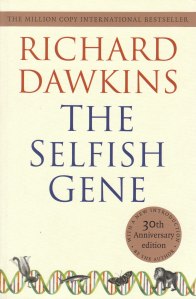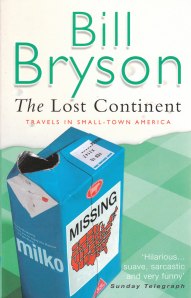Author: Vladimir Nabokov
Publisher: Penguin
Date Published: Originally published under the title ‘Conclusive Evidence’ in America and ‘Speak, Memory’ in England in 1951. This Penguin addition with additional ‘Chapter 16’ was published 2000.
Pages: 272
An Autobiography Revisited
‘Speak, memory’ said Vladimir Nabokov. And immediately a host of enchanting recollections came flooding back to him; of his comfortable childhood and adolescence, of his rich, liberal-minded father, his beautiful mother, an army of relations and family hangers-on and of grand old houses in St Petersburg and the surrounding countryside in pre-revolutionary Russia. Young love, butterflies, tutors and a multitude of other themes thread together to weave an autobiography which is itself a work of art.
‘Speak, Memory’ is the autobiographical memoir of Vladimir Nabokov, author of the infamous Lolita, and is set during the twilight era of the Russian Tsars and the uprising of the Bolshevists. His privileged childhood, the world of Russia in the early 1900’s and the often fantastical histories and legends of his extremely extended family are lovingly described (family photos and a crude map are included). The memoir follows him after his exile from Russia to Europe and eventually to the boat that will carry him to America. In classic Nabokov tradition the lines between fact and fiction, truthful memory and exaggeration, are elusive and fanatically distorted.
Nabokov is a magician and he captivates his audience with unparalleled sensory descriptions. He describes with stunning accuracy things we have all seen and are nestled in our memories, yet paid little attention to at the time or in our every day life – for instance ‘the discreet, pleasantly cool, rhythmically undulating caress of a caterpillar ascending ones bare skin’. ‘Speak, Memory’ lavishes in details – smells, textures, the play of light – and in the constant merging and unmerging of the conscious and subconscious sides of our brain.
‘Speak, Memory’ is homage to the transcendant qualities of art, language, memory and to everything which is emotional, nostalgic and beautiful. It is porn for lovers of language, poetry and the written word in general. It is writing for writing’s sake; an excercise in the art and pleasure of linguistics. At times it almost seems to transcend its autobiographical form into poetry. This is the perfect companion for those who suffer from logolepsy or any other love of obscure, difficult to pronounce words.
Russian poet Yevgeny Yevtushenko said in a Playboy interview that he could “hear the clatter of surgical tools in Nabokov’s prose”, a statement I can’t really argue with either. Nabokov seems to dissect not only his memory, but every presentation of information in this autobiography, with a meticulous, almost scientific rigour. Riddles, chess problems and complex poetic rhythms are painstakingly intertwined in the work, something that I find interesting and alienating.
There is an ever present sense of narcissism and self obsession in ‘Speak, Memory’ (as there are in all autobiographical works, but even more strongly here). Nabokov hardly mentions his siblings, despite being one of five. He often refers to himself as the ‘favorite son’. People, especially past girlfriends, sometimes seem like mere objects, or pawns, in his game of memory, as opposed to real humans with individual needs and lives separate from Nabokov. Until the last third of the memoir he touches very little on the politics of the Russian Revolution, he only refers to how it affects his family, particularly his Father – this aspect of self-absorption is extremely deliberate and also actually refreshing. It grounds the actions of the revolutionists in reality and helps to understand how powerful political and historical forces affect people in their everyday lives.
This particular Penguin edition contains an appendix, ‘Chapter Sixteen’ or ‘Conclusive Evidence’, a pseudo-review written by Nabokov in 1950. ‘Conclusive Evidence’ is very odd and a serves to increase the reader’s lack of surety about Nabokov. Nabokov is an elusive and self-aware figure, often admitting his contradictions or giving clues as to when he is misleading his audience. For instance, despite lamenting his lost home he admits that being wrenched away has created a bittersweet nostalgia that has fuelled his creativity. In contrast to this, his true emotions, if they are ever presented at all, are hidden within riddles and false trails for the reader to decipher. ‘Chapter Sixteen’ throws some of the opinions that the audience may have come to believe into doubt – which is simultaneously frustrating and intriguing. It causes ‘Speak, Memory’ to be a highly re-readable autobiography.
‘Speak, Memory’ should be read at a leisurely pace – to rush through would tarnish the imaginative banquet Nabokov has laboriously prepared. The mental images, and the overall complexity, should be savoured and slowly digested. This is definitely not for readers who like straight-forward, no fuss pros, or who read for plot rather than art. Whether or not the reader can take to Nabokov, ‘Speak, Memory’ stands are as an incredible literary achievement in its technical brilliance and as a window into a fragile era.
♥♥♥♥ – 4/5



